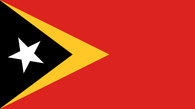Teaching Cases
A collection of case studies I have written over the years.
KFit's Hyper-Growth for a Fit Asia-Pacific, but What About The Land Down Under?: ASB-16-001
With Ray FUNG
|
KUALA LUMPUR, SEPTEMBER 2015 - KFit (‘Keep Fit’) is one of Malaysia's youngest and fastest-growing Born-Globals. The new app offers subscribers cheap, convenient health and wellness options. The case describes the start and growth of the startup from Kuala Lumpur. The company raised over US$15 million in less than a year and is backed by high-profile investors Sequoia Capital and 500 Startups, among others. It has also broadened the scope of its business: it started out simply offering unlimited gym classes – akin to US-based Classpass – but now covers massage services, spas, and salons as well. ASB Professors Willem Smit and Ray Fung wrote this case to illustrate a critical decision moment in the very early international expansion phase. In September 2015, when KFit got challenged by the US-based competitor ClassPass. The global market leader with international operations in more than 30 cities had just announced the entry into the Australian market – one of KFit’s strongholds. After an unbroken series of victories in the first months, it seemed that the company’s first real competitive challenge had presented itself. What would be best for KFit? What would be an appropriate response to their new international rival? Because, one thing was clear: Australia and New Zealand were an integral part of KFit’s international expansion efforts. , and defending and growing its position over there was key, even though these markets were completely different from other KFit markets, both culturally and economically.
|
|
KUALA LUMPUR, MAY 2014 - Tan Sri Yong Poh Kon, managing director of Royal Selangor (RS), the world’s largest pewter company, was in a meeting with his son Yoon Li and nephew Chen Tien Yue, both executive directors of the company, to decide how to build on the brand’s current success. Since graduating from university, Poh Kon had led the third generation family members for 30 years. During that time, he had witnessed a complete transformation of the company’s branding strategy, from primarily focusing on mass communication to integrating multiple consumer touch points, including new and advanced ones like social and mobile media. It had been almost 10 years since Tien Yue and Yoon Li had joined the fully owned family business. Together with their family and employees, they had successfully grown the brand through innovative product design, frequent collection launches and intensified internationalization. To establish RS as a truly global luxury brand, the two cousins and Poh Kon knew that further growth and a rethinking of RS’s branding strategy was critical for the almost 130-year-old company. All three were aware that it was not the first time RS had repositioned itself. To define the next steps for RS, Yoon Li, Tien Yue and Poh Kon decided to first assess how the brand and the family business had evolved and how the family, through the generations, had adapted and upgraded the brand. And, during periods of change and transition, how did the generations learn from each other and develop the new practices and capabilities needed to build and reinforce the luxury status of RS’s brand?
DOWNLOAD FROM HERE: http://www.thecasecentre.org/educators/products/view?id=128446#.V28A0BrdZoU |
SINGAPORE, OCTOBER 2012 - Scoot, is a new subsidiary airline of the Singapore Airlines Group, the new airline launched in November 2011. It is a low-cost, medium to long-haul carrier that is independently operated and based out of Changi Airport in Singapore, and serves value-conscious travellers in the Asia-Pacific.
Throughout the region, more and more people are taking to air travel for the first time as income levels continue to rise. The low-cost carrier model thrives through strong demand for cheap air travel. However, this has led the airline industry to experience commoditisation and greater price-based competition. Full-service Singapore Airlines – with a long history and established premium brand – has a business model inappropriate for this kind of environment. Scoot was therefore established to take advantage of opportunities in the rapidly growing budget-travel segment. Campbell Wilson, a 17-year veteran of Singapore Airlines, is seconded as CEO to startup Scoot. In the year following the launch, criticisms of the new airline begin to appear. In October 2012 an editorial in a prominent publication claims that Scoot will contaminate the Singapore Airlines brand and cannabalise sales. Campbell must address these claims. DOWNLOAD FROM HERE: http://ink.library.smu.edu.sg/cases_coll_all/81/ |
Khalil & Fils Fattal: Branding the New Generation of Entrepreneurs: IMD-7-1541
BEIRUT, JULY 2012 - As the outside world was once again falling deeper into economic and political turmoil, members of the Fattal family arrived for a board meeting in the much-loved Heritage Room at the headquarters of the Fattal Group in Sin El Fil, East Beirut. In this elegantly decorated space, the history of the family and the company came to life, reminding them of their determination to overcome hardships as they had so often done before. For more than 115 years, four generations of the Fattal family have brought international premium brands to every household in the MENA through good and bad times. Establishing a reliable name in the turbulent region, where periods of stability and growth could rapidly turn into uncertainty and decline, was not easy. Fattal has built a solid reputation for honoring its commitments and hence it was highly valued within the business community of suppliers and resellers, as well as in the market for talent management. Faced with renewed uncertainties and unrest, Chairman and CEO Khalil Fattal worried about the future of the business. Just a few years earlier the company had lost its visionary leader, Khalil’s cousin Bernard, raising many questions for the family: How could it ensure the continued growth of the business in an increasingly unstable market? How could it help to prepare the company for future generations? How should the future business model respond to the changing industry landscape in the distribution business and how could the prominent name of the Fattal family be leveraged to differentiate the business from current and future competitors? Learning objectives: Discussing the next generation’s family business identity and corporate communication strategy in an emerging market context.
DOWNLOAD FROM HERE: http://www.imd.org/research/publications/case-studies/case/2804 |
Massive Collective: Redefining Cool in Nightspots: SMU-14-0027
SINGAPORE, MARCH 2011 - It was yet another packed night in March 2011 at Singapore’s exclusive nightclub “Filter”, and John Langan, co-founder of the Massive Collective, a company which owned and managed the club looked around with considerable pride. It had been quite a career change for the young Taiwanese-American psychobiology major from the University of California, Los Angeles, who had first started working as a foreign exchange broker in Singapore in 2005.
In September 2010, John and his two partners started their first club venue, Filter. Filter offered a mix of unique propositions – a higher proportion of females in the clientele mix, an exclusive guest list, and cutting edge music not offered at other nightclubs in Singapore. Now six months later, Filter was continuing to do well, but Langan knew from his experience that most clubs had a shelf life of only about 18 months. There was also news about a number of new nightclubs that were slated to open in Singapore later that year, which would mean increasing competition in an already competitive environment. but. Langan looked around once again at the club buzzing with life, and mused to himself as to how Massive Collective could continue to stay on the cutting edge of cool in an increasingly competitive environment. DOWNLOAD FROM HERE: |
All in a Twitter over Facebook? Social Internet Use at Pragmaticase: IMD-3-2138
This case presents the issue of employees' use of social media through the eyes of Johan L, the CEO of Pragmaticase. Several companies have started to block employees from accessing Facebook(TM), Twitter(TM), YouTube(TM), LinkedIn(TM), flickr(TM), and other social media tools from their workplace computers and networks. The issue has also recently seen increased coverage in the news media. Should the company simply forbid all use of social websites and give the IT department the go-ahead to block access to these sites? Or should it choose not to fight this battle and let Internet use be unrestricted?
The case presents arguments a company needs to consider in order to make informed decisions on this divisive question. Learning objectives: the objective of this case is to raise a contemporary issue: employees' use of social media sites. Through this discussion some basic dichotomies can be exposed and discussed, such as: (1) work / life balance; (2) control versus flexibility; (3) inspect versus expect; (4) results-only-work-environment versus traditional contracts; (5) requirements of knowledge workers vis-a-vis traditional labour; and (6) perspectives on humans and leadership (eg, theory X vs theory Y). The case provokes managers to think about positive and negative aspects of restricting access to social media sites. (featured at The Aspen Institute’s: http://www.caseplace.org/d.asp?d=5207) |
Movie, Money, Marketing: Branding "3 Peas in a Pod": SMU-15-0016
Michelle Chong is a successful actress but a novice producer in Singapore. After her directorial debut success, she decides to produce a local movie set to premiere in November 2013 based on a script she had written ten years ago. Chong is still getting used to the business aspect of movie making, but is faced with the added challenge of having to market the movie strategically in Singapore, which had a demographic accustomed to blockbuster Hollywood movies. Among her tactics to keep her movie production costs low were: employing product placement tactics, partnering with a large distribution chain in marketing, and engaging in many co-promotional events such as road shows and interviews with the media. Shortly before the movie release, Chong suffered a setback when the media authorities restricted viewership of her movie to viewers older than 16 years old – this would exclude much of her target audience.
The case can be used in undergraduate and post-graduate programs to teach concepts related to marketing. The case is suitable for programs with a focus on marketing and competitive strategy. Students will learn issues in filmmaking and how the industry operates. They will also learn how to apply the 4 Ps framework (Pricing, Product, Place and Promotion) to marketing a new movie and how the Diffusion of Innovations theory can help speed up the movie adoption rate DOWNLOAD FROM HERE http://www.thecasecentre.org/educators/products/view?id=129208 |









